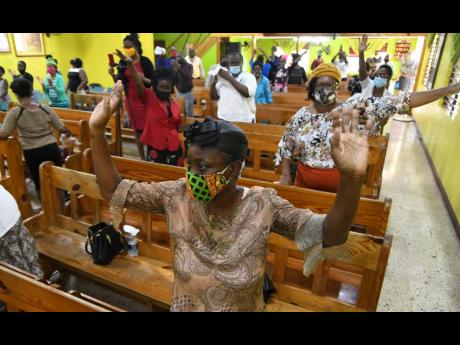Learn to live with COVID-19
THE EDITOR, Madam:
We may have to learn to live with COVID-19. University of Alberta virologist David Marchant, who has been looking for a treatment for the dangerous respiratory syncytial virus (RSV), says that vaccines aren’t a certainty. “I’m not optimistic that we’ll find a vaccine in the next few years because we have so little data on the coronavirus,” said Marchant, who is the Canada Research Chair (Tier II) in Viral Pathogenesis. “In fact, I propose that this virus will become endemic. Viruses aren’t things we can fight. They’re things you learn to live with, treat, and mitigate.”
I am convinced that COVID-19 will be with us for many years to come, and we will have to continue to live with it.
We conduct tests, contact tracing and quarantine infected persons. Thinking that lockdowns, wearing masks, and social distancing will stop the spread is utopian. It might slow it down, but that is still not conclusive. The fight against COVID-19 is a marathon not a sprint. We must take actions that we can sustain.
Lockdown has a detrimental effect on the economy and must be used sparingly, if at all. Strategic testing and quarantining infected persons is more effective than locking down an entire country or section of a country. Because testing is expensive and time-consuming should not be an excuse for not doing it. It costs far more in economic losses than what it does to spend the time and resources on testing and quarantining infected persons.
UNNECESSARY HARDSHIPS
Thousands have lost their jobs because of lockdowns and other measures implemented to contain COVID-19.
It is not the pandemic, but government actions that cause unnecessary hardship for the most vulnerable. Things can be handled differently. The lockdown has hurt the poor the most and government aid has been inadequate. Eventually, the Government may have to increase taxes and make spending cuts, and then the poor will be disproportionally affected.
We must protect the vulnerable population such as the elderly and people with illness such as hypertension and diabetes. We need to look at innovative solutions.
BRIAN ELLIS PLUMMER

